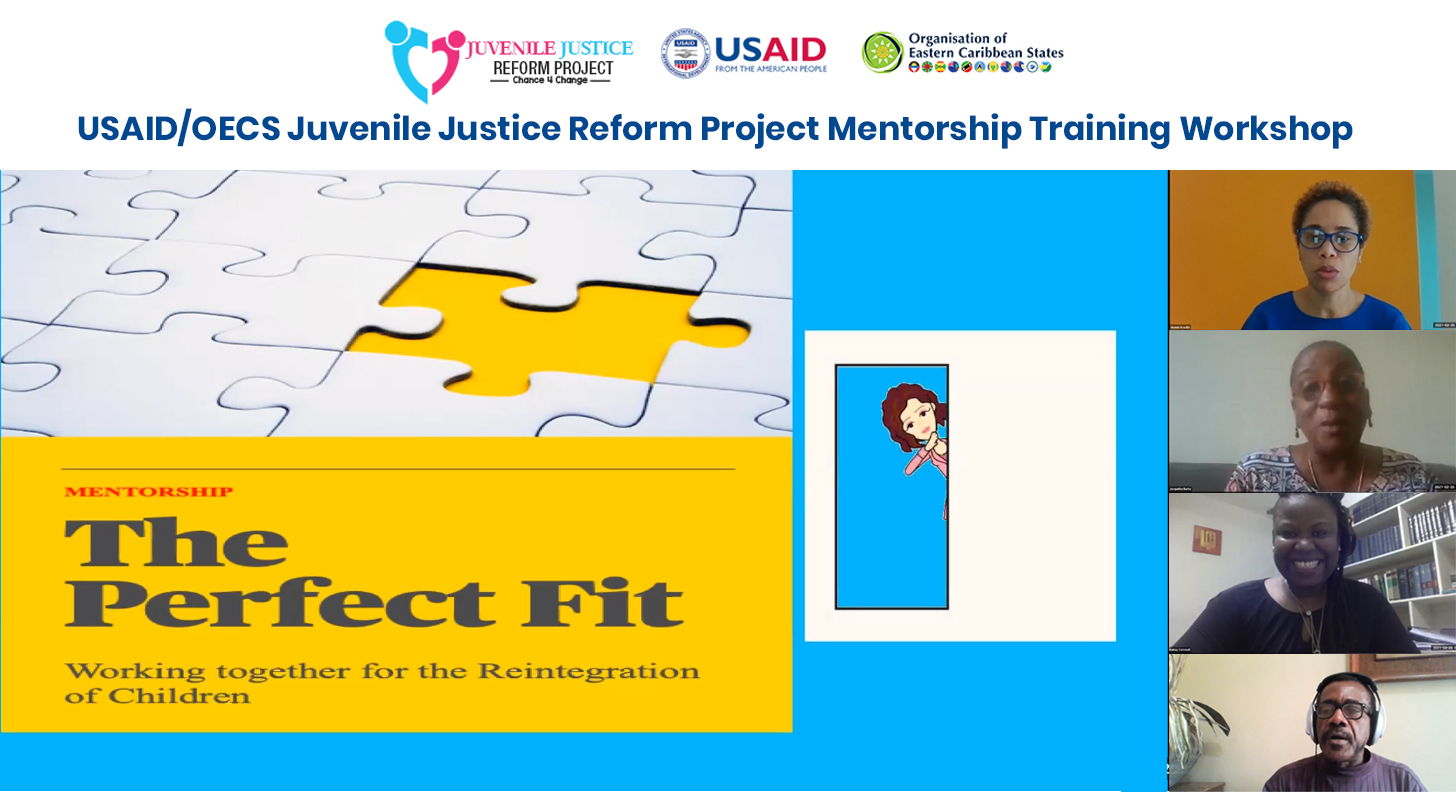JJRP preparing mentors to support children in conflict with law!
OECS Media Release
The USAID/OECS Juvenile Justice Reform Project (JJRP) held a ‘Mentoring Train the Trainers’ workshop, in fulfillment of one of its goals to establish mentoring programmes across the OECS. Research has shown that mentors can be a significant factor in changing the life of a child who is in conflict with the law. JJRP intends to establish a cadre of well-trained, professional mentors to support rehabilitation and reintegration.
This support is also guiding government agencies in the Commonwealth of Dominica, Grenada, Saint Lucia and St. Vincent and the Grenadines, as these agencies partner with the private sector to develop mentorship programmes. It is vital that partners understand and maintain established standards, including ethical considerations. A workshop was held with persons identified to be mentors which covered:
-
The Role of Mentorship for Children in Conflict with the Law
-
Elements of Effective Practice for Mentoring
-
Focusing on Ethical Considerations
-
Being an Effective Trainer: The Do’s & Don’t ’s
A total of 43 individuals participated, who now have the capacity to roll out subsequent training workshops for other mentors. This group included people with backgrounds in psychosocial training and who have a keen appreciation for mentorship programming. In reflecting on the mentorship workshop, Brian Aird, Reintegration Officer with the Juvenile Justice Reform Unit in Grenada expressed that
“The curriculum was quite useful as it explained the facets of what a mentor is, the importance of building a rapport with your mentees, and the different ways one can communicate with mentees. Although we needed more time for this workshop, we were able to discuss various scenarios, the practical solutions and ways to handle different issues that may arise in mentoring. I would say that my biggest takeaway was the importance of involving the community within the mentorship programmes and ensuring that mentors are comfortable and can relate to a mentee’s community. Overall, I found it was very pertinent and timely.”
The JJRP was very pleased with the content and participation at the workshop. Shahini Gravillis, USAID/OECS JJRP II Technical Officer stated that
"This is such an important part of rehabilitation and reintegration. With so many persons in the Member States willing to assist and support the youth, it is critical to ensure that we leave a qualified team of mentors, who can further train new mentors, as each country strives to develop their own mentorship programmes or improve existing mentorship programmes”.
About OECS/USAID Juvenile Justice Reform Project Phase II (JJRP)
The Juvenile Justice Reform Project (JJRP) Phase II, funded by the United States Agency for International Development (USAID), and being implemented by the OECS Commission, deals specifically with children in conflict with the law and the provision of diversion, rehabilitation and reintegration mechanisms for assisting children in the six (6) OECS independent Member States of Antigua and Barbuda, the Commonwealth of Dominica, Grenada, St Kitts and Nevis, Saint Lucia and Saint Vincent and the Grenadines Over the four years of JJRP Phase II, some key achievements include:
- Child Justice legislation passed in Antigua and Barbuda, Grenada, Saint Lucia, St. Kitts and Nevis and Saint Vincent and the Grenadines.
- A Legacy model and framework to guide the use of diversion, rehabilitation and reintegration has been developed and is being adopted in all the countries.
- Diversion and rehabilitation options being actively supported within partner countries.
- Since 2016, Over 440 children have been diverted/given alternatives from arrest or custodial sentences.
- Over 215 children in conflict with the law completed Aggression Replacement Training (ART®). Trainers trained by JJRP now deliver ART® within each country.
- More than 1,400 service providers have been trained to improve the diversion, rehabilitation, and reintegration services provided to children in conflict with the law and their families.
